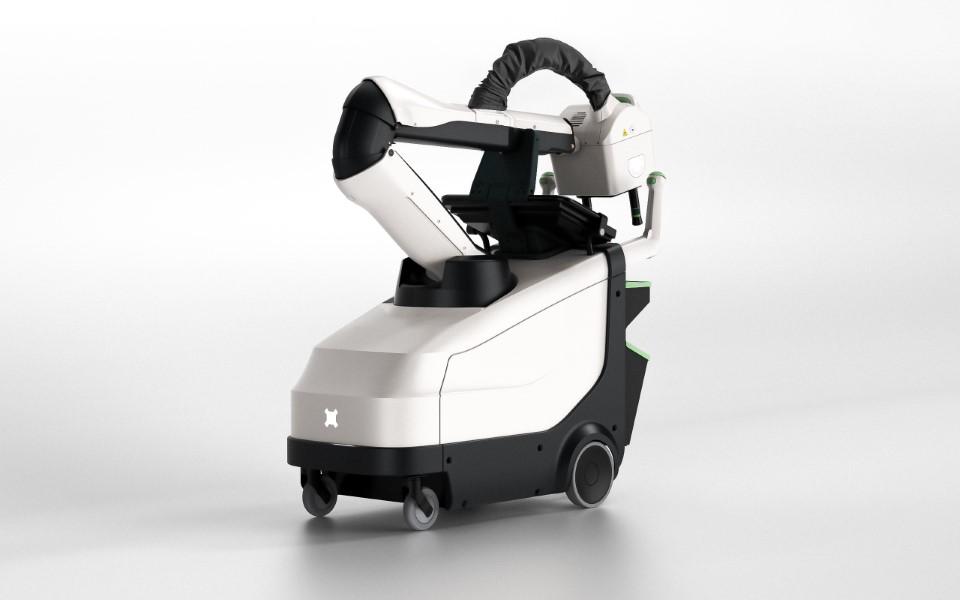

Micro-X Inc. Chief Executive Officer of Americas and Chief Scientist, Brian Gonzales welcomed the announcement, saying it fully funded the company to live test self-screening checkpoints in US airports.
“This contract extension fully funds us to build and test the design of a self-screening checkpoint in real airports, demonstrating the improvements and refining the design with real passenger and operator input,” Dr Gonzales said.
The Passenger Self Screening Project relates to DHS and TSA’s future vision of replacing the current conveyor belt design for the screening of passengers’ carry-on luggage with a bank of multiple ‘self-service’ security stations capable of scanning passengers and their carry-on luggage together.
The concept is based on the idea of self-service checkouts at supermarkets, moving from a staffed conveyor system to a smaller and automated self-service system to increase throughput, improve staff efficiency, and improve passenger experience.
In November 2020, Micro-X signed two contracts totalling US$4.0m with the DHS which are now close to completion. The first contract for US$1.5m, later expanded to US$1.94m, is for the design and manufacture two prototype miniaturised CT baggage scanners. These prototypes are due for delivery to the DHS in the coming months.

The second contract, for US$2.49m, is for the design of the overall security self-screening checkpoint system, incorporating Micro‑X’s miniaturised CT scanner with other screening components and system design for passenger and operator use. Micro-X’s role, as prime contractor with overall design authority, has been to lead an international consortium to deliver the self-service module. The Micro-X led design team successfully passed the critical design review gate on 28 June, completing the design phase of the project.
With the design phase of the Self Screening Checkpoint project completed, DHS has awarded a contract extension to Micro-X as prime contractor and systems integrator worth up to A$21.0m (US$14.0m) across a 40-month period. This contract extension will allow Micro-X, together with its partners, to build and test fully integrated self‐screening stations in live US airport environments with travelling passengers.
“US airport security is a unique market, where the government is both the regulator and the customer,” Dr Gonzales said.
“The partnership we have formed with DHS and TSA enables us to combine input from both the end-customer and the safety regulator to deliver a design that completely re-imagines security screening but is also grounded in the reality of airport operations and regulations.
“We are excited to continue our partnership with DHS and TSA as we build and then demonstrate this design in real airports.”
The new project will involve fabrication of a single self-screening station, growing to three stations, and finally a full six-station lane, with each increment first tested in TSA laboratories and then in at least one live US airport.
At each stage, Micro-X will receive feedback on the airport and passenger experience from the DHS and TSA to refine and improve the end design. The objective of the project is to have a fully integrated passenger self-screening security system that is ready to transform the passenger security experience across the United States’ 440 airports.
The project has eight phases in total, some of which run in parallel, with milestone payments ranging from A$3.0m to A$6.0m (US$2m to US$4m). DHS has committed A$7.25m (US$4.88m) to fund Phase 1 of the project over the next eighteen months for Micro-X start to build the first prototype of the fully integrated self-screening checkpoint station.
The contract extension is a significant step forward in Micro-X’s airport security strategy, providing continued opportunity to collaborate with global leaders in the field and develop the technology with direct feedback from the customer.
More information can be found here:


In the final newsletter for 2025, we reflect on some of the achievements of the year, while looking towards what is to come in 2026.


The newly updated Rover Mobile DR X-ray system will be launched at the Radiological Society of North America (RSNA) Annual Meeting in Chicago this November, building on Rover's proven strengths in lightweight, motor-free mobile imaging.


Ahead of World Stroke Day on October 29, Stockhead’s host Fraser Palamara spoke with Australian Stroke Alliance co-chair Professor Stephen Davis about the massive global impact of stroke and the technology reshaping how it’s treated.

Micro-X creates revolutionary X-ray technology to better lives.
Our Purpose
Find out how Micro-X is creating new opportunities for industries across the world.
Find out more
They’re the visionaries and innovators behind our X-ray technology, products, culture and ethos.
Meet the team